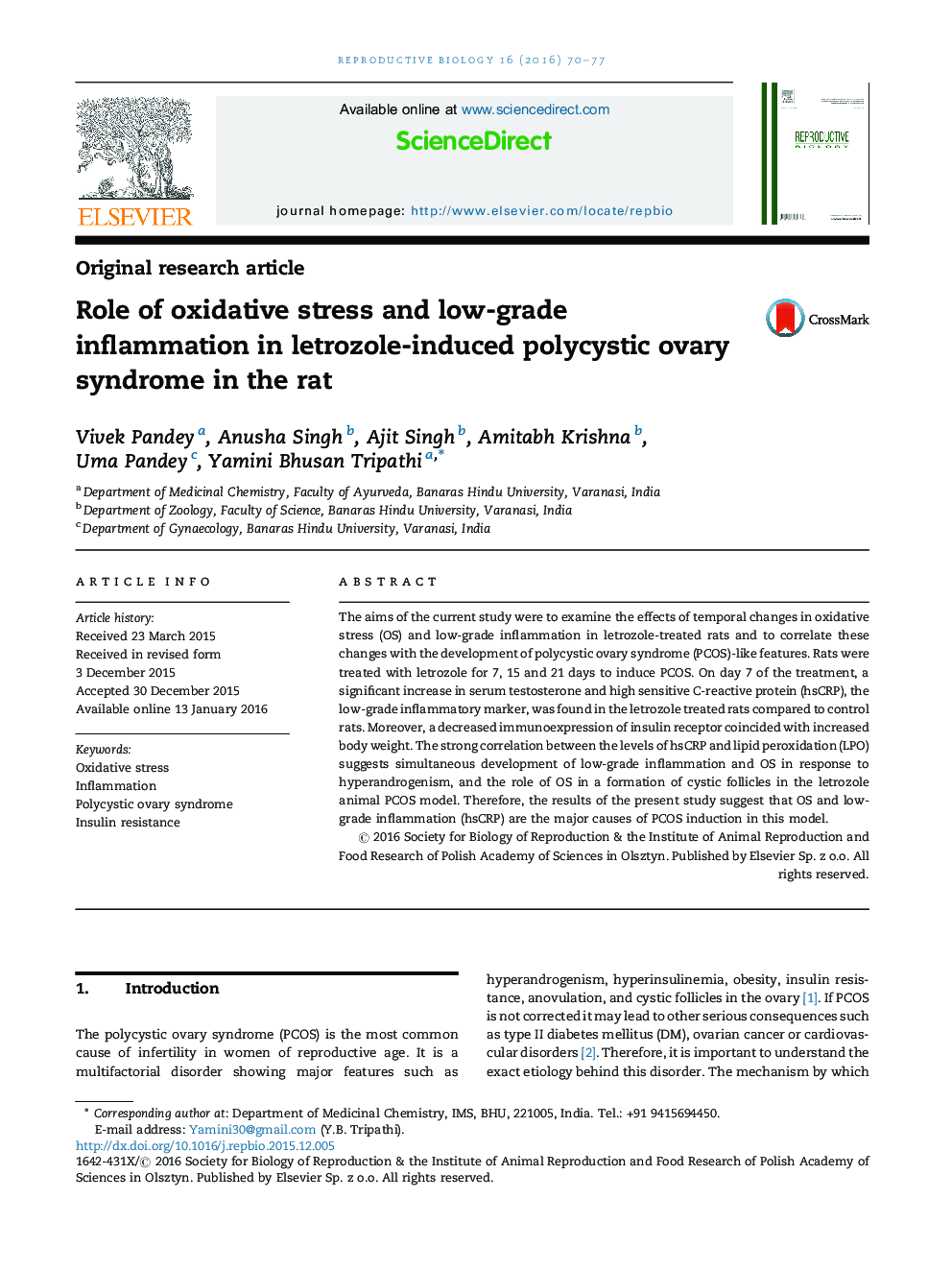| Article ID | Journal | Published Year | Pages | File Type |
|---|---|---|---|---|
| 2062366 | Reproductive Biology | 2016 | 8 Pages |
The aims of the current study were to examine the effects of temporal changes in oxidative stress (OS) and low-grade inflammation in letrozole-treated rats and to correlate these changes with the development of polycystic ovary syndrome (PCOS)-like features. Rats were treated with letrozole for 7, 15 and 21 days to induce PCOS. On day 7 of the treatment, a significant increase in serum testosterone and high sensitive C-reactive protein (hsCRP), the low-grade inflammatory marker, was found in the letrozole treated rats compared to control rats. Moreover, a decreased immunoexpression of insulin receptor coincided with increased body weight. The strong correlation between the levels of hsCRP and lipid peroxidation (LPO) suggests simultaneous development of low-grade inflammation and OS in response to hyperandrogenism, and the role of OS in a formation of cystic follicles in the letrozole animal PCOS model. Therefore, the results of the present study suggest that OS and low-grade inflammation (hsCRP) are the major causes of PCOS induction in this model.
